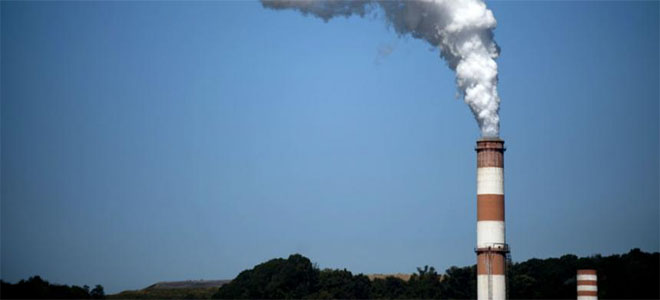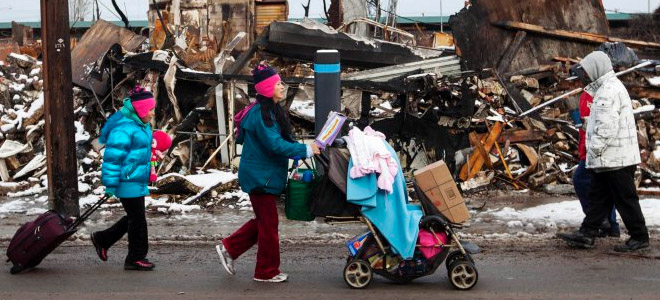
Max Boykoff is quoted in a Foreign Policy article on climate wars:
Exporting Climate Skepticism
Some of the most advanced countries in the world are increasingly rejecting climate change. But where did they get this idea? America, it seems.
by Kate Galbraith
The language in the climate wars has gone from academic and polite to downright venomous.
In England, Prince Charles has dubbed climate skeptics the “headless chicken brigade.” (Perhaps he was recalling the grim fate of some chickens on his estate a few years back.) In Australia, Maurice Newman, a top business advisor to the prime minister who’s in the skeptic camp, has decried “climate change madness” and proclaimed that “the scientific delusion, the religion behind the climate crusade, is crumbling.” In the United States, a Time magazine writer accused Washington Post columnist Charles Krauthammer of “unfrozen Caveman lawyer naiveté” for questioning climate science. “The next step is book burning,” Krauthammer fired back at critics.
This is good stuff for headline writers. But what’s more interesting is that these debates are playing out all over the world — more specifically, over much of the English-speaking world. Britain, Australia, and the United States are all grappling with politically powerful voices that question the scientific consensus that humans contribute significantly to climate change. “Is the BBC becoming the U.K. version of Fox News on global warming?” the Guardian recently asked, lamenting the “disproportionate air time” given to climate-skeptic talking heads.
Skepticism — or, more potently, denialism — matters because it stalls action. The United States has virtually abandoned the idea of cap and trade and turned to narrower power plant regulations. Australia, as another example, is backing away from its cap-and-trade and carbon-tax plans in favor of a fuzzier reverse-auction system in which companies will compete to sell emissions-abatement credits back to a government fund. And it leads into some other questions I’ve been mulling for a long time: Did the United States export climate skepticism to its best allies? And can we reel it back in?
The United States, where powerful industries are skilled at downplaying environmental risks, appears to have embraced the skeptic movement first, in the run-up to the 1997 Kyoto Protocol. Back then, as now, a network of conservative think tanks churned out skeptics to question global warming science in congressional testimony and in news articles, as recounted in this 2003 academic paper, “Defeating Kyoto.” (The term “climate skepticism” is said to have arrived around 1995.) A rightward political shift was also at work as Republicans took control of Congress in 1994. The United States never ratified Kyoto, and the movement has remained entrenched ever since — and spread around the world.
Skepticism, in at least some of its flavors, is obviously a good thing for science. European researchers sometimes embrace the skeptic label, because that’s what they’re supposed to do — question things. “In the absence of political polarization as it exists in the United States, European scientists are more ready to call themselves skeptics,” Andreas Kraemer, the head of Ecologic Institute in Berlin, told me. Skepticism has refined our understanding of climate change in good ways over the past century, as scientists have better layered water vapor, volcanoes, and other factors onto their greenhouse-gas models. Climate is so complex that there are plenty of things we don’t fully understand yet, as a February 2014 paper by the U.S. National Academy of Sciences and Britain’s Royal Society duly noted.
But a scientific consensus does exist that humans are courting catastrophe by changing and warming the climate. The National Academy and the Royal Society are only the latest in a long, long line to say that very clearly.
So why, then, does the belief persist in some of the most advanced countries of the world that this is not the case? Climate skepticism is apparently on the rise in Britain, where a poll last year found that the proportion of people who doubt change is happening has more than quadrupled since 2005, to 19 percent. (Perhaps the recent flooding will change some minds back.) Likewise, a fifth of Australians do not believe climate change is happening.
The originator of all this appears to be the United States, where about 15 percent of respondents have told Gallup that global warming will never produce any effect. “Definitely there’s a lot of common agreement that this kind of brand of [climate] contrarianism emanated from the United States,” said Max Boykoff of the University of Colorado. But Bernd Sommer, a humanities scholar at the University of Flensburg in Germany, argues that a gradual diffusion has taken place. Serious climate skeptics, he said, are “part of an international knowledge community. This does not mean that they are formally or personally connected. However, they visit the same websites and blogs, refer to the same studies, data, and skeptics’ arguments.”
English-language connections and media polarization help spread the trend. James Painter, who heads a journalism fellowship program at Oxford University, surveyed newspapers in Brazil, China, France, India, the United States, and the United Kingdom in a 2011 paper and found that climate skepticism, in its various stripes, appears to be “a predominantly Anglo-Saxon phenomenon.” Partly due to the “climate-gate” scandal, skeptic representation increased between the two three-month periods he surveyed, in 2007, and between 2009 and 2010. (Sommer, the German academic, also notes that the failure of the Copenhagen climate meeting, the economic crisis, and some long, frigid winters in Europe may have fanned skeptic flames.) In a separate study, Painter says that he also found that voices skeptical of climate change “were more present in more articles in Australia, U.S., and U.K. than France, Norway, and India.”
Why? Inevitably, it’s a number of factors. For one thing, British and American newspapers tend to quote politicians more extensively on climate matters than papers in other countries — and politicians, to say the least, don’t always stick to the science. (A contrast is France, where “some people argue that … there is a much stronger respect for science and scientists amongst the political class and the general population,” said Painter.) The opinion pages of British and American papers give ample play to skeptics, and lobby groups are strong and well-financed. Joint transatlantic ownership of the media could play a role. And a shared language, of course, makes it easier to transmit skeptical bloggers’ ideas.
But there’s more to it. It’s hard to pin down, but skepticism appears prevalent in some advanced extraction economies, or nations that value growth above the environment. It is true of the United States, with its get-the-feds-off-my-back Tea Party clamor. It’s also true of Australia, where mining and natural resources have been key drivers of economic growth. Poland, which is hungry for coal and fracking, also has a vein of climate skepticism. Britain seems to fit this model, too, with its relative openness to fracking and ambivalence toward European regulations. Developing countries are different: They seem less skeptical of climate change, perhaps because they are eager to blame weather woes on the rich world. It’s notable that in China, a major extraction economy, skepticism is relatively limited; the Chinese Academy of Sciences recently rebuked the Heartland Institute for thinking it was getting cozy with skeptics.
One of the best climate-change quotes of all time landed this month, from Andrew Mackenzie, chief executive of Australia’s mining giant BHP Billiton. “You can’t argue with a rock,” he told an energy conference in Houston, in citing geologic evidence of climate change. But even if global leaders like Mackenzie come around, my prediction is that skepticism is going to be harder to dislodge in the United States than in the rest of the world. After all, it was made in the U.S.A.
 Disasters Cost More Than Ever — But Not Because of Climate Change
Disasters Cost More Than Ever — But Not Because of Climate Change






 Roger Pielke, Jr. was highlighted in a New York Times blog on climate variability and drought.
Roger Pielke, Jr. was highlighted in a New York Times blog on climate variability and drought.

